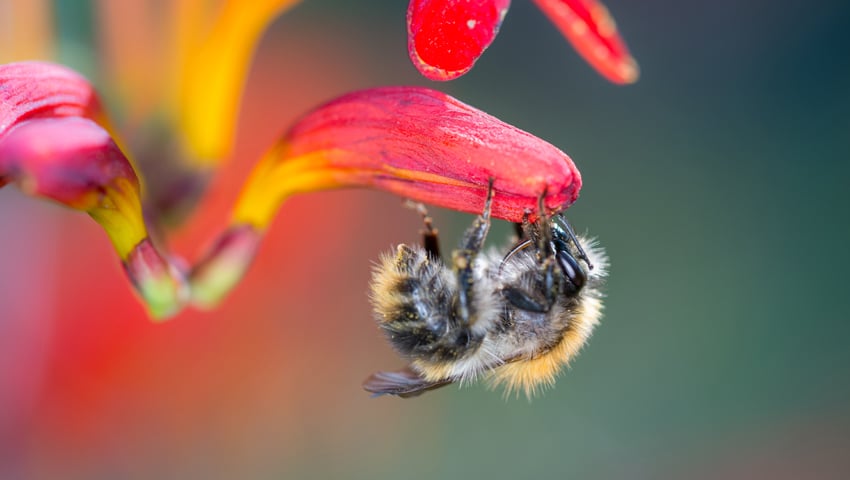Farming Minister, Mark Spencer, has approved ‘emergency’ authorisation for the use of the highly damaging neonicotinoid, Thiamethoxam, on sugar beet for the fourth year in a row.
This pesticide has been banned in the UK since 2018 but has been approved for use on sugar beet crops in England. This announcement comes despite an industry commitment to end reliance on the banned pesticide by 2023.
A spokesperson for The Wildlife Trusts said, “Thiamethoxam is lethal – even a miniscule trace of this toxin can disrupt a bee’s ability to navigate and reproduce, significantly reducing the chance of survival. With a third of UK food crops pollinated by insects, and their contribution to the UK economy estimated at hundreds of millions of pounds per year – our food system cannot function without bees.”
Research published in 2023 found harmful neonicotinoids present in more than 10% of English rivers, home to 3,800 invertebrate species, despite a widespread ban of these chemicals in 2018. Today’s decision will put the health of these rivers at even further risk.
Soil Association Senior Farming Policy Officer Lucia Monje-Jelfs said, “Time and time again we see the government ignoring its own advice and allowing bee-harming neonicotinoids. These chemicals are a disaster for our wildlife, our soil and especially our pollinators.
“This is the fourth year running we’ve been told it’s a temporary solution – this is simply not a credible claim.
“This news has come on the same day that the Office for Environmental Protection published a report showing the government is off track to meet its nature targets.
“So-called ‘emergency’ derogations such as these distract from action on finding sustainable alternatives – this short-term thinking is only delaying progress towards our environmental commitments.
“Farmers want to future-proof their farms – for this to be possible, we need more investment to drive research into agroecological alternatives and support for farmers to adopt these methods through peer-to-peer learning and training.
“The government must show genuine leadership to meet their environmental ambitions and prioritise solutions that protect our endangered bee population and all other life on earth.”
The Wildlife Trusts submitted a formal complaint about the Minister’s decision to grant authorisations in previous years to the Office for Environmental Protection (OEP) in June 2023, which is still under consideration. The UK Government’s decision to authorise this chemical is in contradiction with the OEP’s report released today: Progress on improving the natural environment in England. The report states that UK Government’s efforts to manage exposure to chemicals and pesticides has been limited and they it is largely off track to meet its commitments.
Barnaby Coupe, land use policy manager at The Wildlife Trusts, said, “The Farming Minister’s decision to authorise the use of a banned neonicotinoid pesticide on sugar beet for the fourth year in a row is a deathblow for wildlife, a backwards step in evidence-based decision making, and a betrayal of farmers who are producing food sustainably.
“It is entirely possible to produce food in a way that helps rather than harms nature – and UK farmers know that the use of this chemical is not a long-term solution. Rather than repeat authorisations for toxic chemicals, The Wildlife Trusts want to see British Sugar and the UK Government offer more support to transition away from harmful pesticides like these, which threaten the future of our farming and natural systems.”
